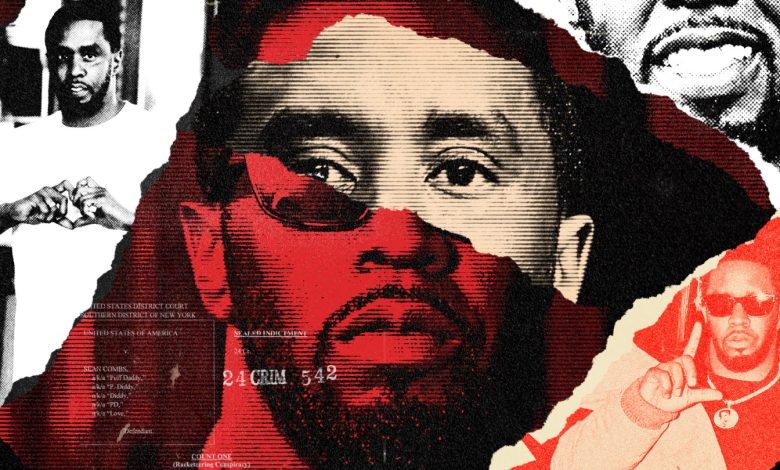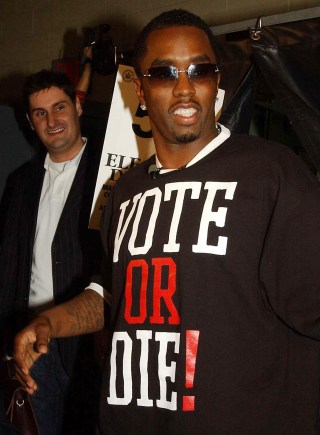Former Diddy Publicist Speaks Out on Silence, Fame, and Accountability

For a few surreal years during the early 2000s, I stood just outside the velvet rope of modern celebrity, close enough to bask in its glow, far enough to avoid its consequences. I was a publicist — not just for Sean “Diddy” Combs but also for Jennifer Lopez, Alicia Keys, Jon Bon Jovi, Kate Spade, Jessica Simpson and Naomi Campbell. My job was to shape images, spin crises and polish imperfections into allure. Fame was the product. I was part of the packaging.
But no client defined that chapter of my life more than Diddy. Back then, he was one of the most visible men on earth — a music mogul, fashion tastemaker and tabloid fixture. I took his calls at 1 a.m., traveled on his private jets and drafted statements that bore his name but never his truth. I thought I was managing a persona. In reality, I was helping protect a system.
And now, with Sean “Diddy” Combs facing a cascade of allegations — including rape, sexual assault, sex trafficking and physical abuse — all of which he has denied, I’m left with a question I can no longer avoid: What’s more damning? Not knowing? Or not wanting to know?

There is a difference. One is ignorance. The other is complicity.
When I say I didn’t see the alleged behavior, I mean it. But I also understand the ways I may have refused to. That refusal didn’t come from malice. It came from ambition. From awe. From the seductive hum of being needed by someone the world adored. It’s astonishing what we’ll fail to see when fame is in the room.
Because fame isn’t just powerful. It’s intoxicating. It rewires reality. It tells you that bad behavior is eccentricity, that danger is edge, that discomfort is just the price of access. When you’re close to fame, you don’t just protect the star — you begin to inhale their mythology. You breathe it in until it fills the empty spaces in your own sense of worth.
I convinced myself that I was doing good work. I was launching brands, placing magazine covers, shaping narratives. What I was actually doing was managing a mirage. And like so many others in the entertainment ecosystem — agents, producers, stylists, executives, managers — I learned to look away.
Looking away is part of the job. You compartmentalize. You rationalize. You focus on the next campaign, the next event, the next crisis to spin. And in those moments, you become what systems like these need to survive: silent.
I’ve been to a lot of celebrity homes in my time — Naomi Campbell’s, Kate Spade’s, Sting’s — and not once did I have to walk through a metal detector. But at Diddy’s house? It was like airport security. That’s when the little voice inside me whispered, “This isn’t normal.” I ignored it.
There were guns — everywhere. Big guys with blank expressions who tracked your every move. I’d overhear him on the phone, whispering to high-ranking law enforcement like they were old friends. If he needed a favor, he’d make one call, and boom — it was done. I told myself that was just power. Influence. Star-level access. But now? It feels like something darker.
And then there was the photo.
An agency once had a photo — Diddy with a mysterious girl. It wasn’t flattering. He ensured it was never seen again. No lawsuit, no public comment — just money. And silence.
I remember being warned by one of his bodyguards: “Never carry his bags when we travel together on his private jet. ” I didn’t ask why. I didn’t want to know. That was the deal we all made to work for him: Don’t look too closely, and you get to stay in the room.
Diddy was the king of staging photographs. I had a list of “trusted” photographers who would “bump into him” just as he helped a homeless person or visited Harlem — always in full hair and makeup. One day, I was busy with another client and had my assistant arrange the pap setup for one of Diddy’s “random” acts of generosity. When the assistant called Diddy to confirm, he went ballistic. I was the only one allowed to know he staged those moments. Keeping his secrets was part of the job.
He used cash like camouflage. Not just to tip a maître d’ for a table, but to literally buy his way into events that didn’t invite him. He is the only private individual I’ve ever known with a bank-grade cash-counting machine in his home. That wasn’t flair. It was control.
What’s horrifying is how ordinary this becomes. It’s not that we saw a monster and did nothing. It’s that we saw a man — charming, charismatic, generous when it suited him — and ignored the signs that something more sinister might be underneath. Because asking those questions meant jeopardizing everything: access, reputation, money. So, we didn’t ask.
Why didn’t we say something? Why did we keep the machine running?
The answer is brutally simple: Because it worked for us. Until it didn’t.
There’s a cultural sickness at the heart of this — the tendency to mistake charisma for character, proximity for integrity, success for safety. We put celebrities on pedestals and then we act surprised when the foundations crack. But the rot was there all along — buried beneath years of brand-building, PR campaigns, industry awards and glossy features. We just didn’t want to look.
Or worse — we did, and we looked away.
This isn’t just about Diddy. It’s about the systems that allow people like him to thrive unchallenged. It’s about fame, the executives who reward silence, the publicists (like me) who sanitize stories and the fans who forgive too quickly when the soundtrack is good.
When I say I regret my role, I mean it. But regret isn’t enough. Accountability means naming the system — and naming your part in it.
I often think of something a media colleague once said to me: “You don’t have to see the abuse to help enable it. You just have to keep quiet.” That silence becomes armor. It becomes protection — not for the victims but for the powerful.
There’s a moral sleight of hand in this business — a way of justifying detachment as professionalism. But what I’ve come to realize is that neutrality in the face of abuse is not professionalism. It’s surrender.
I believed I was building stars. But in some cases, I was building shields — barriers that helped keep questions out and enablers in. And I hope I’m not the only one wrestling with that truth now.
Because if we helped build it, we can help break it.
Rob Shuter is a former celebrity publicist and the host of the podcast Naughty But Nice With Rob.
This story appeared in the June 18 issue of The Hollywood Reporter magazine. Click here to subscribe.
Source: Hollywoodreporter
HiCelebNews online magazine publishes interesting content every day in the music section of the entertainment category. Follow us to read the latest news.
Related Posts
- CJ ENM America Taps Courteney Tarantin as VP of Scripted TV
- ‘F1: The Movie’ Director Joseph Kosinski Reveals Why Simone Ashley’s Role Was Cut From Film
- Eric Dane Has No Plans to Quit Working amid ALS Diagnosis: ‘Ride This ‘Til the Wheels Come Off’
- Chappell Roan Admits She Does “Give a F***” About the Backlash She Receives
- Jonathan Bailey Is Breaking Hollywood’s Rules — and Winning





